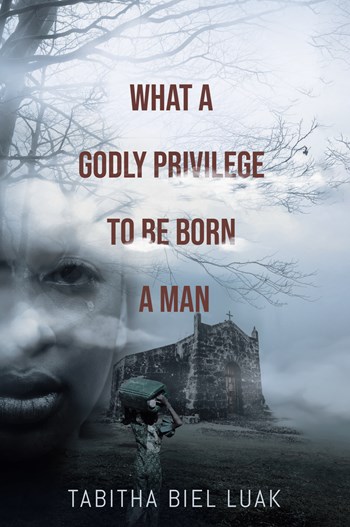In WHAT A GODLY PRIVILEDGE TO BE BORN A MAN, Nyayang Jock is initially delighted to marry her love, Chuol, but when she takes too long to conceive, and fails to conceive a son at all, she is swiftly replaced by a new wife, Sarah. Author Tabitha Biel Luak tells us the purpose behind this story in her Author’s Note: to ask the reader what it means to be human, in all the ways that humans differ from each other. In this she is a success, exploring not only gender difference, and how the perceived inferiority of girls becomes a vast difference of opportunity in women, but also intersectional issues such as colorism. The book explores how women who are unable to conceive, or women who are not ‘light-skinned’ enough, are dealt a double blow in this judgmental society. But we also explore the nuances of how difference affects everyone. For example, even Chuol, who on the surface might appear to win in this story, ultimately loses, because he is pushed by his father into a marriage he never wanted; ‘Baba, I told you I’m not ready,’ he says to his father early on in the book. And it is not only men who perpetrate cruelty here; ‘demon-hearted’ women also have their role in maintaining the status quo.
This message could be explored in any setting – anywhere where difference and marginalization exists – but the author brings authentic and tragic knowledge of the specific unfairness of this small South Sudan community, drawn from her own and her friends’ experiences. In this community, where women and children can be bought and sold for cows (a wife worth twenty-five, a girl, two and a half, a boy, seven), she uses the family as a means to exploring cutting, deeply-rooted and highly contemporary social issues. Luak’s use of language is at times beautiful, giving original and powerful imagery that sets the imagination alight; there is clear talent here, and a mind full of rich literary potential. However, sometimes the syntax does not flow as clearly as it could, particularly in longer sections of dialogue. More generally, this book would be even more engaging if there was less explanation around the story, and a greater sensory immersion in the piece. Its tone verges on being detached, which – while sometimes working effectively – occasionally leaves one wanting a closer look at this world from Nyayang’s point of view. However, despite this, WHAT A GODLY PRIVILEDGE TO BE BORN A MAN is certainly worth a read, as it sheds a gleaming light on what it means to be human.
Set in South Sudan, Tabitha Biel Luak’s authentic and revelatory story about the dangers of treating boys and girls – and ultimately men and women – as different classes of citizen speaks clearly on what it is to be human.
~Eleanor Rudd for IndieReader

